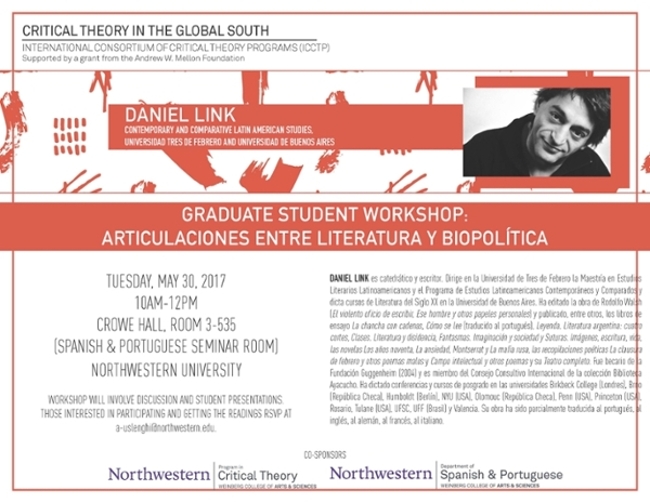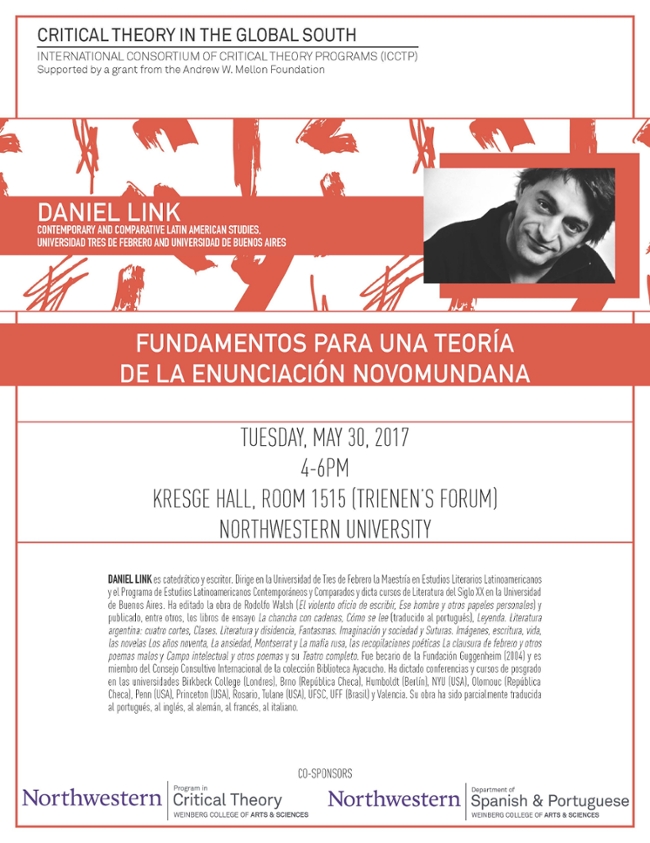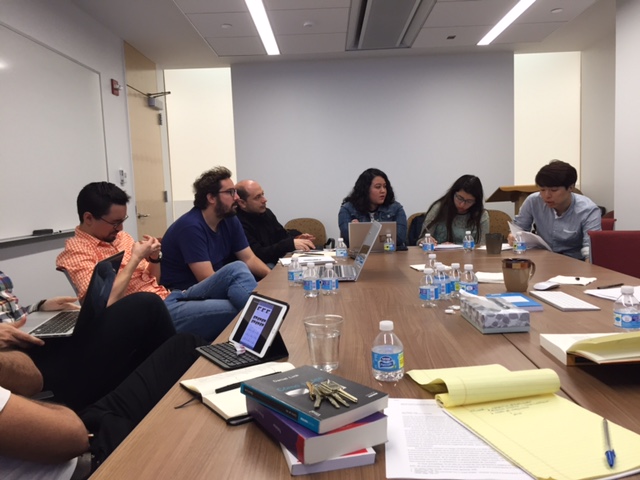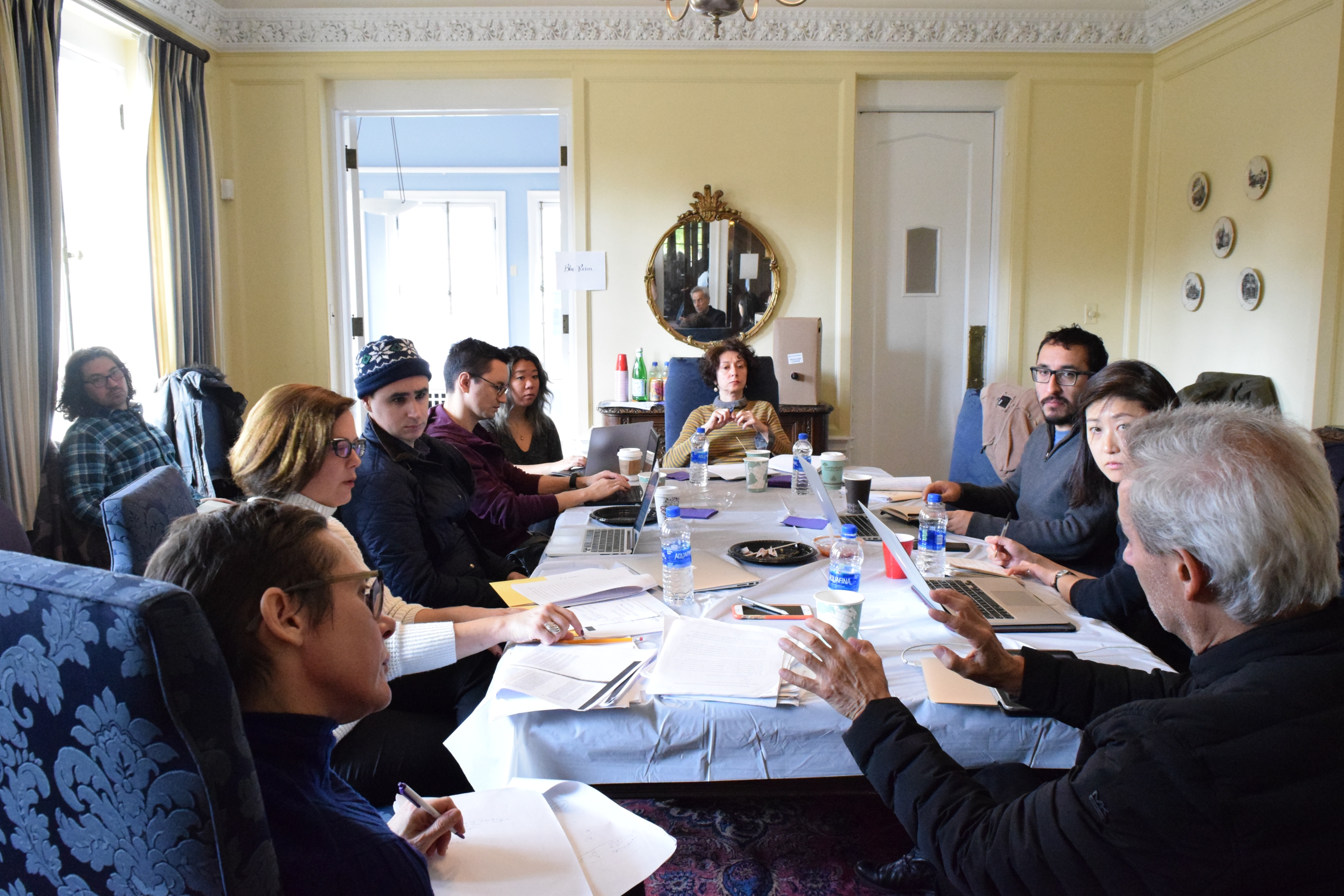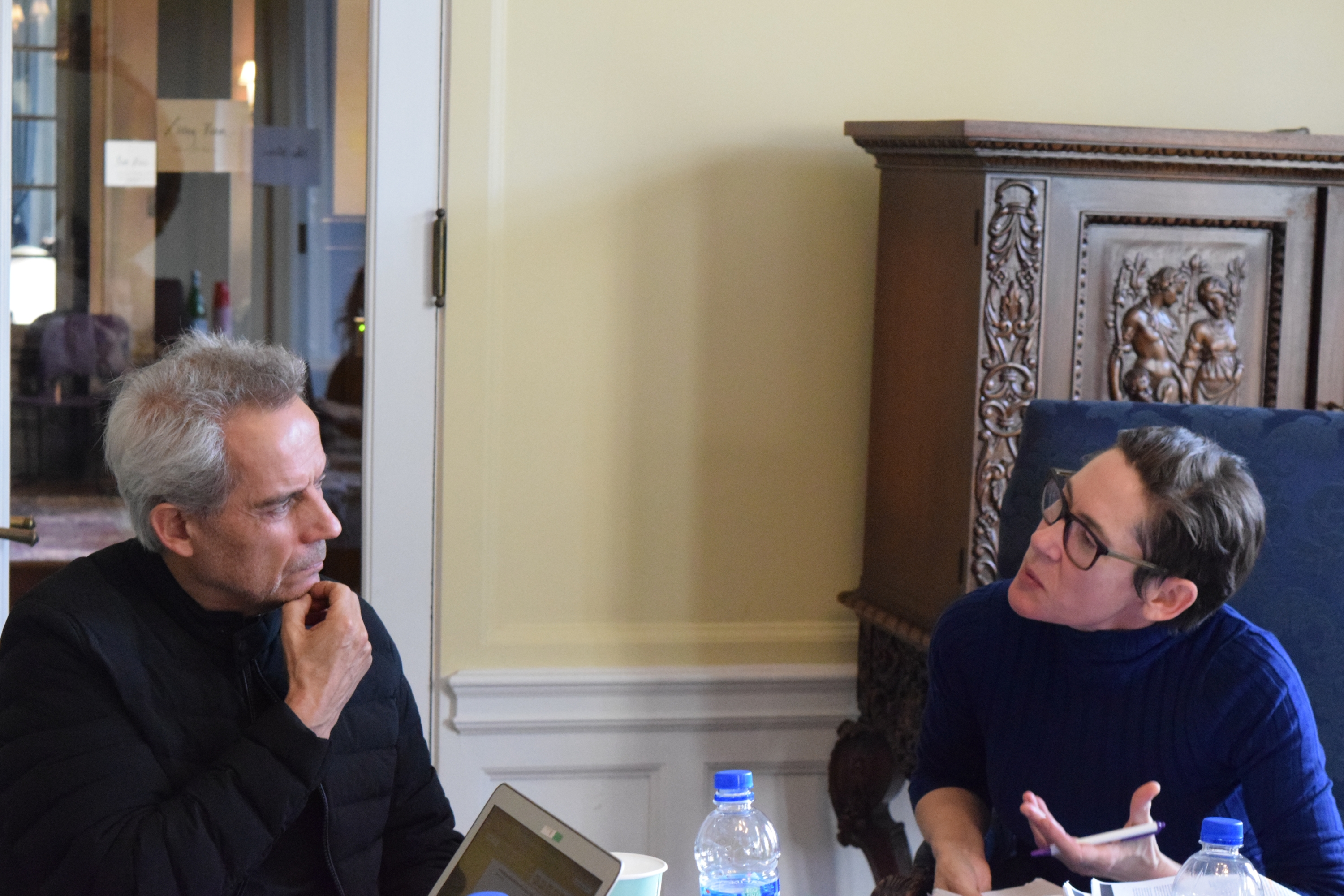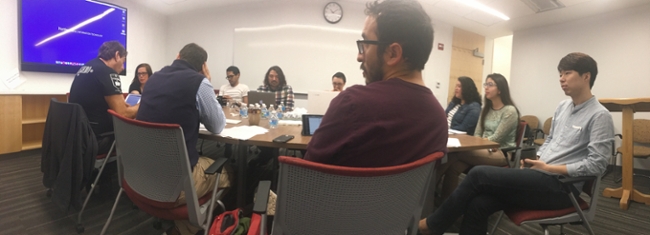After Foucault: Gender and Biopolitics in the Americas
References to the biopolitical have, in some Humanities contexts, continued to be as seemingly devoid of an aesthetic register as they were in the work of Michel Foucault, either because of the extent of its theorization in the technical terms of governmentality; or because it has increasingly been associated with the deprivations, reductions, and abandonments not typically theorized in aesthetic terms. This project considers a range of instances in which the aesthetics of biopolitics has, by contrast, been foregrounded, including the turn to interrogating the affective aspects and the multiple temporalities of the biopolitical, and some of its necro- and thanato-political variants. Just as biopolitics has seemed to offer privileged meanings of understanding humans both in terms of rights and rightslessness, administrations of life and death, it has been associated with both the deprivation or irrelevance of difference and the production of difference, saturated inclusion and the production of the remainder. The project gives attention to a degree of divergence between instantiations of biopolitical theory more oriented towards anthropology and political science and the social sciences, and a number of different lineages of engagement with Foucault and biopolitics more generally--traditions which, from Nelly Richard to Homi Bhabha, have preferred to interrogate the fate or role of the aesthetic in biopolitical contexts, particularly as a means of reconceptualizing forms of resistance: from the social movement to barely perceptible.
Faculty
Professor Daniel Link is Director of the Maestría en Estudios Literarios Latinoamericanos (Master’s in Latin American Literary Studies) at the Universidad Tres de Febrero in Buenos Aires, Argentina. His research is situated at the intersection of Latin American thought, French and German thought, and gender and sexuality studies. Link is the author of numerous monographs, most recently Suturas: Imágens, escritura, vida (2015).
Alejandra Uslenghi is Assistant Professor of Spanish & Portuguese at Northwestern. She specializes in nineteenth and twentieth-century Latin American literature, with an emphasis on visual culture. She is currently at work on a book manuscript titled "Images of Modernity: Latin American Culture at Universal Exhibitions."
Penelope Deutscher is Professor of Philosophy and Associate Director of the Critical Theory Cluster at Northwestern. A specialist in contemporary European philosophy with a focus on post-Foucauldian theory and gender and sexuality studies, she is the author of several books, most recently Foucault’s Futures: A Critique of Reproductive Reason (2017).
Consulting Faculty
Mary Weismantel is Professor of Anthropology at Northwestern, where she writes about indigeneity in the Americas, with a focus on Andean South America (Peru, Ecuador and Bolivia). Her work is guided by concepts of queer feminism and decolonial theory. She is the author of two monographs and numerous articles, including “Towards a Transgender Archaeology: A Queer Rampage Through Prehistory,” in The Transgender Studies Reader, Vol. 2.
Marcela A. Fuentes is Assistant Professor of Performance Studies at Northwestern. Her work focuses on the relationship between performance and digital technology in late 20th- and early-21st-century protest and interventionist art. Her book manuscript, In the Event of Performance: Bodies, Tactical Media, and Politics in the Americas is under contract with the University of Michigan Press.
Background Reading
Andermann, Jens and Gabriel Giorgi. "We Are Never Alone: A Conversation on Bio Art with Eduardo Kac." Journal of Latin American Cultural Studies 26, no. 2 (2017): 279–297.
De Boever, Arne. "From Exception to Care." In States of Exception in the Contemporary Novel: Martel, Eugenides, Coetzee, Sebald, 137–148. New York: Continuum, 2012.
Giorgi, Gabriel. "Improper Selves: Cultures of Precarity." Social Text 31, no. 2 115 (2013): 69–81.
———. Formas comunes: Animalidad, cultura, biopolítica. Buenos Aires: Eterna Cadencia, 2014.
Giorgi, Gabriel and Fermín Rodríguez. Excesos de vida. Ensayos sobre biopolítica. Buenos Aires: Paidós, 2007.
Giorgi, Gabriel and Karen Pinkus. "Zones of Exception: Biopolitical Territories in the Neoliberal Era." diacritics 36, no. 2 (2006): 99–108.
Goh, Irving. "Prolegomenon to a Right to Disappear." Cultural Politics 2, no. 1 (2006): 97–114.
Richard, Nelly. "Dimension of Social Exteriority in the Production of Art," "Rhetoric of the Body," and "The Displacement of Supports and the Eradication of the Boundaries between Genres." In Margins and Institutions, 51–82. Melbourne: Art & Text, 1986.
Rodríguez, Fermín A. "Fear, Subjectivity, and Capital: Sergio Chejfec’s The Dark and Roberto Bolaño’s 2666." Paralax 20, no. 4 (2014): 345–359.
Sanyal, Debarati. "Calais's 'Jungle,' Refugees, Biopolitics, and the Arts of Resistance." Representations 139 (2017): 1–33.
Segato, Rita. "La norma y el sexo: frente estatal patriarcado, desposesión, colonialidad," and "Género y colonialidad: del patriarcado de bajo impacto al patriarcado moderno." In Des-Posesión: genero, territorio, y luchas por la autodeterminación, edited by Marisa Belausteguigoitia and María Josefina Saldaña-Portillo, 321–351 and 125–163. Mexico City: UNAM, 2015.
Thayer, Willy. "El Golpe consumación de la vanguardia" and "Critica, Nihilismo e interrupción: La Avanzada después de Márgenes e Instituciones." In El fragmento repetido. Escritos en estado de excepción, 1–94. Santiago: Ediciones Metales Pesados, 2006.
Villalobos-Ruminott, Sergio Roberto. "Historicism, Nihilism, and the Chilean Avant-Garde." Discourse 35, no. 3 (2013): 362–383.
Williams, Gareth. "Sovereignty and melancholic paralysis in Roberto Bolaño." Journal of Latin American Cultural Studies 18, no. 2–3 (2009): 125–140.
Wright, Melissa W. "Necropolitics, Narcopolitics, and Femicide: Gendered Violence on the Mexico-US Border." Signs 36, no. 3 (2011): 707–731.
Ziarek, Ewa. Feminist Aesthetics and the Politics of Modernism. New York: Columbia University Press, 2010.
News and Events
- January 13-17, 2020 | Northwestern
Professors Daniel Link and Mariana López Seone of Universidad Tres de Febrero (UNTREF) in Buenos Aires, Argentina visited Northwestern University for a series of collaborative meetings with faculty and students, organized as one of the concluding events of the 'After Foucault' subproject. This week-long series of events focused upon the subject of 'Critical Concepts on Latin American Queer/Cuir Theory and Literature' and also featured contributions from renowned Latin American author Mario Bellatin. Full details of the events can be found here.
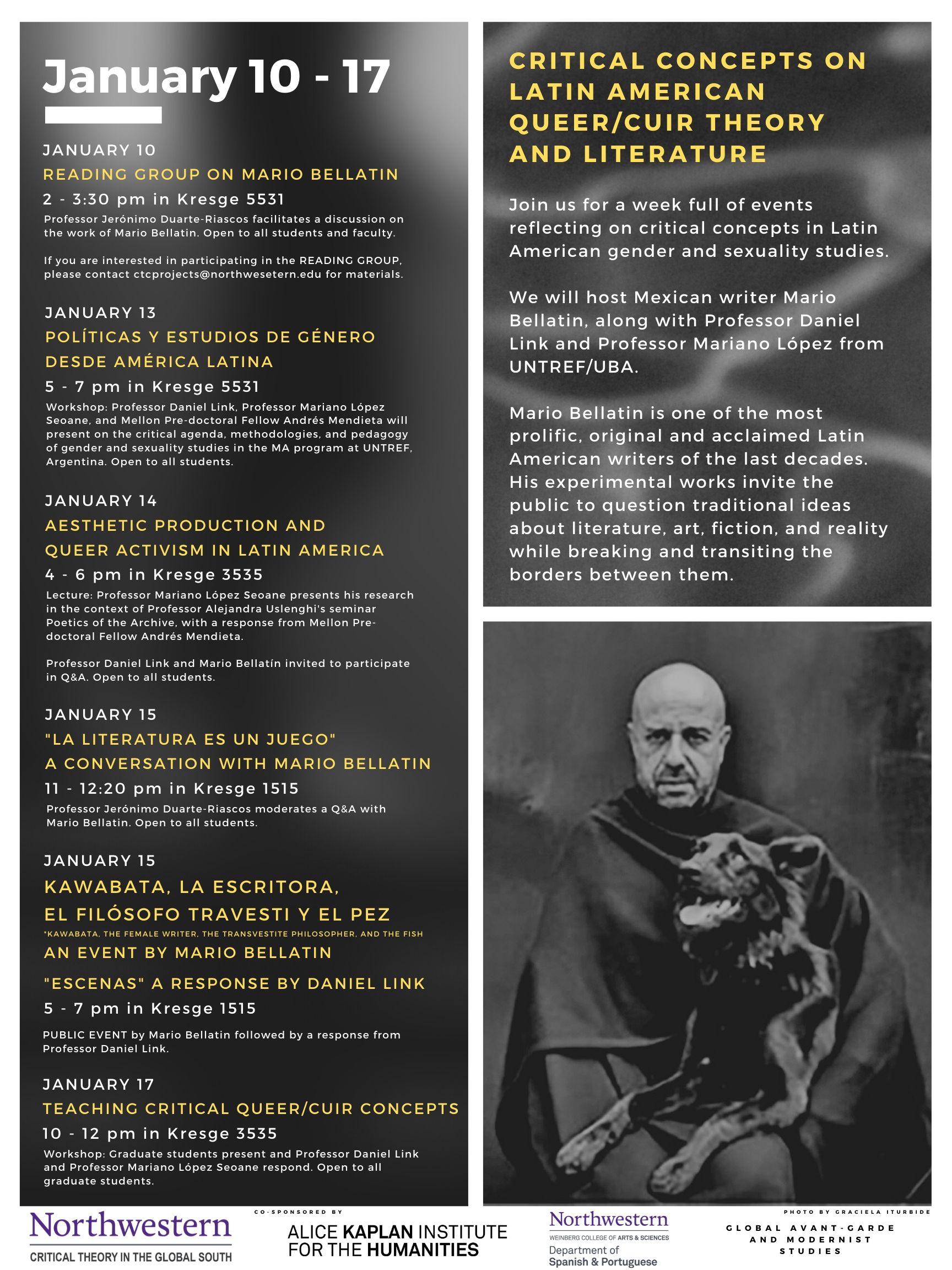
- April 25-26, 2019 | Northwestern
Professor Gabriel Giorgi of New York University visited Northwestern as part of the 'After Foucault' project's Biopolitics speaker series. During his visit, Professor Giorgi delivered a public talk tiltled "A Democratic Hate: Writing the “Wars of Subjectivity” in Latin America," which explored the relationship between recent reconfigurations of political subjectivities, which have engendered a growth in conservatism in South America, and the transformation of writing that has occurred in the wake of new media. Giorgi also led a workshop with faculty and graduate students that discussed his recent research on the subject of the intersection of culture and biopolitics in Latin America.
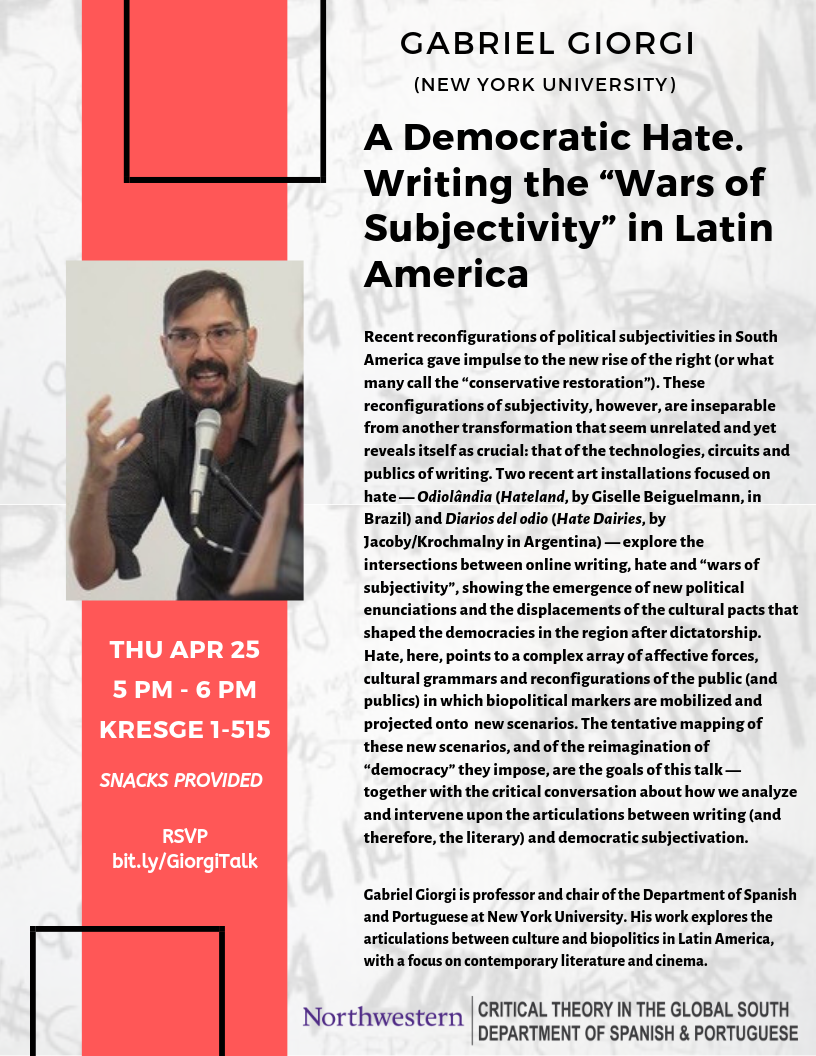
- April 16, 2019 | Northwestern
Professor Gabriela Balcarce of the University of Buenos Aires delivered a presentation entitled "Resistance and Argentinian Feminism" for an audience of Northewestern faculty, students, and staff members, as part of the 'After Foucault' project's Biopolitics speaker series. Balcarce's talk analyzed of the Feminist movement in Argentina using a biopolitical approach, using the collective Ni Una Menos as an example of what Foucault calls resistance as a practice of subversion that dislocates towards new forms of subjectivation that highlight the creative character of power. To accomplish this, Balcarce considered Judith Revel’s interpretation of Biopolitics and resistance.
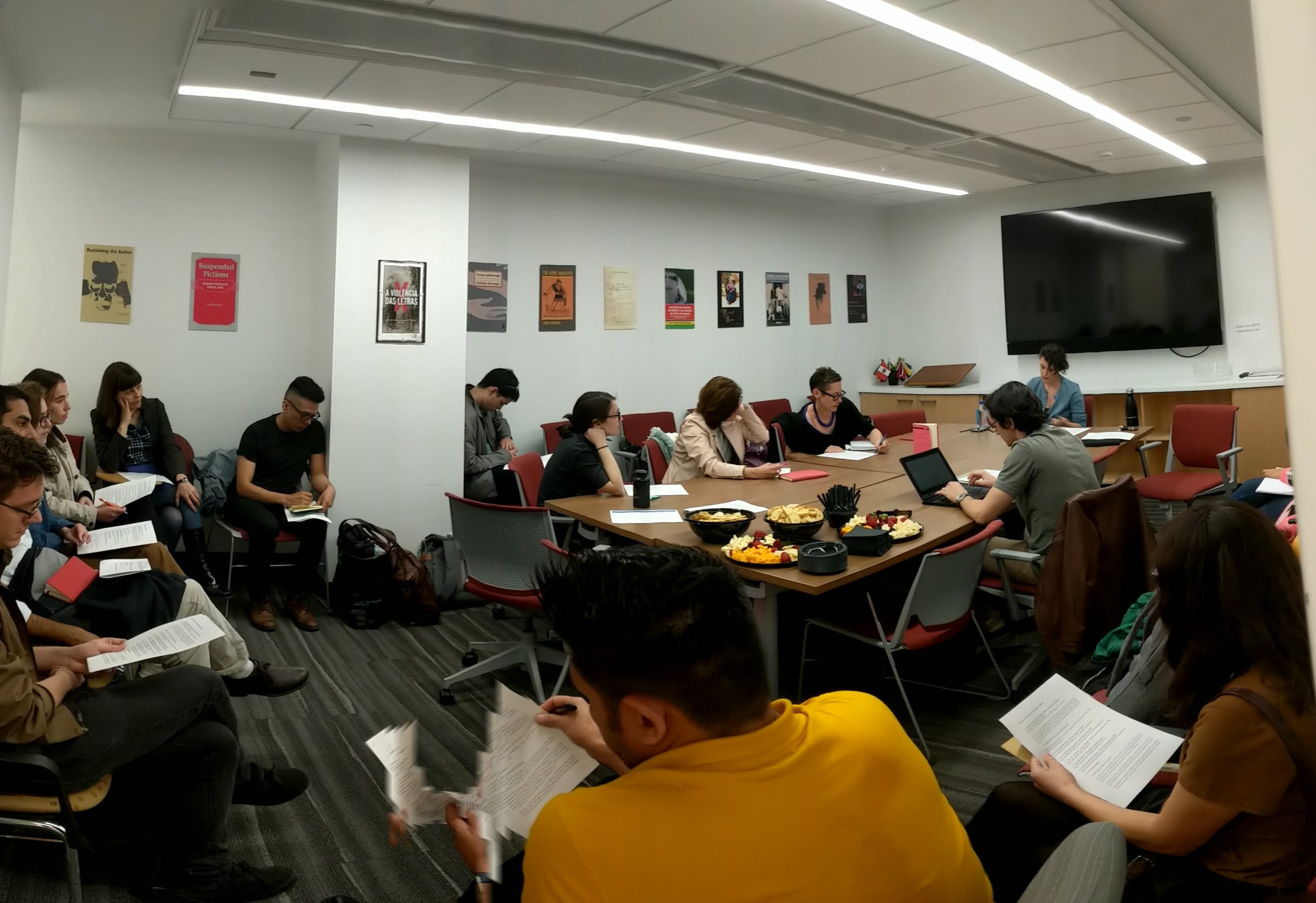
- March 25–29, 2019 | UNTREF
Professors Deutscher and Uslenghi travelled to UNTREF in Buenos Aires, Argentina for a week of collaborative meetings with Professor Daniel Link and graduate students from the University, including two graduate workshops led by the Northwestern professors. During these meetings, Deutscher and Uslenghi were delighted to issue a call for applications for a Predoctoral Fellowship which will enable a UNTREF graduate student to travel to Northwestern University in Fall 2019 for a 6-month residency, during which they will assist with the ongoing research of the 'After Foucault' project.
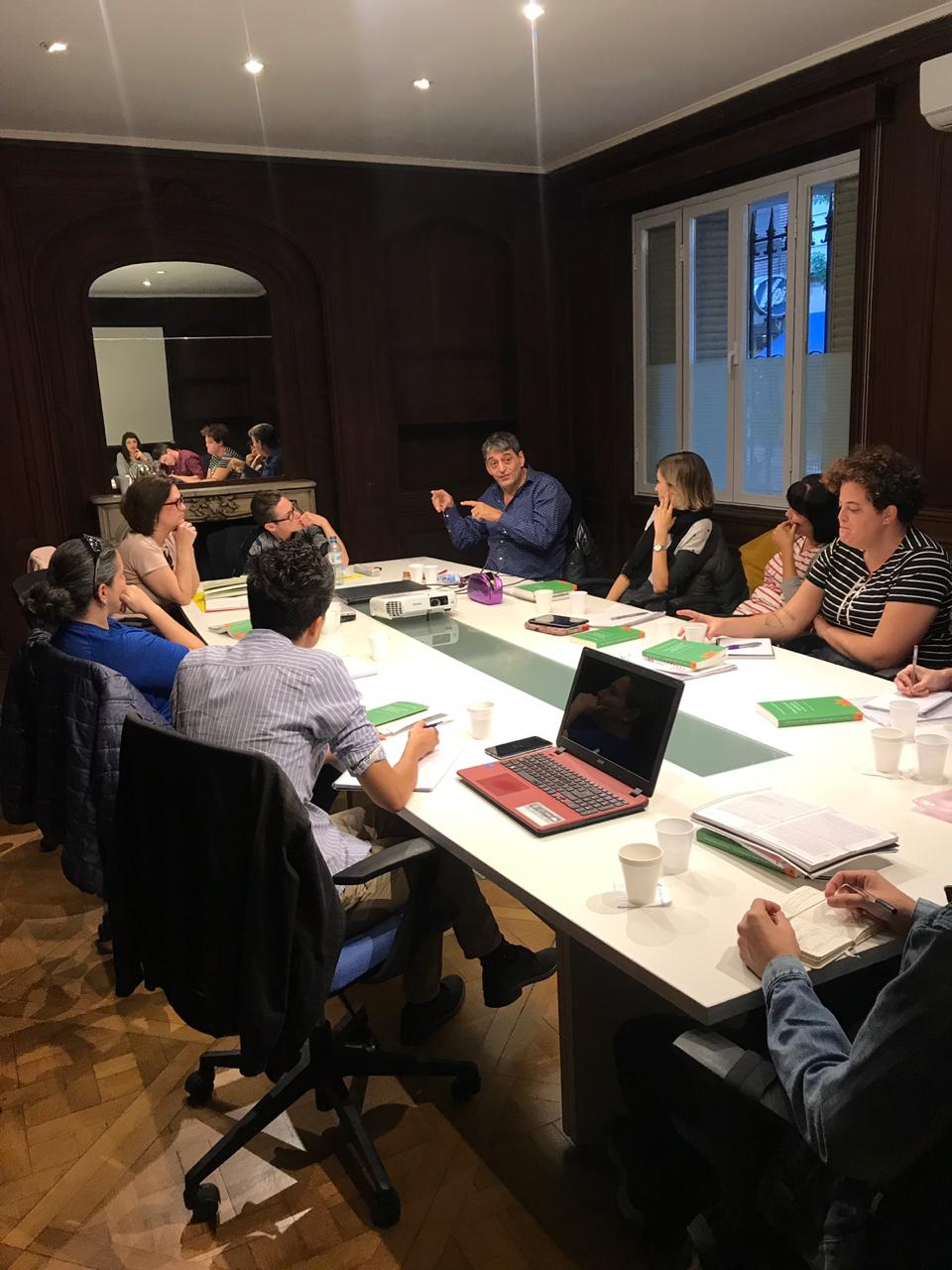
Profs Uslenghi, Deutscher, and Link lead graduate workshop at UNTREF
- November 10–13, 2017 | Northwestern
Professors Deutscher and Uslenghi participated in Transformations of Critical Theory, the inaugural workshop of the Critical Theory in the Global South Project. On November 13, they and Willy Thayer led a teach-in for graduate students on the theme "From the State of Exception to the Aesthetics of Biopolitics."
"From the State of Exception to the Aesthetics of Biopolitics" teach-in
Professors Thayer and Deutscher - May 30, 2017 | Northwestern:
Professor Daniel Link held a Spanish-language graduate student workshop on the theme "Articulaciones entre Literatura y Biopolítica" and delivered his paper "Fundamentos para una Teoría de la Enunciación Novomundana."